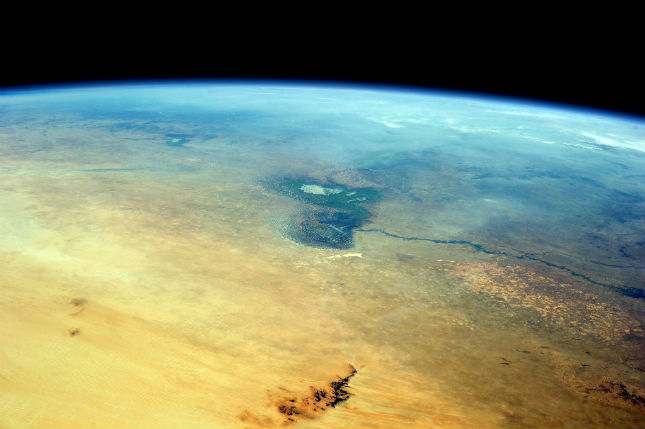-
The Unfolding Humanitarian Crisis Around Lake Chad: UN Report Falls Short of Naming Environmental Dimensions
September 20, 2017 By Florian Krampe
It is encouraging to see that the United Nations Security Council is beginning to acknowledge the transboundary dimensions of fragility and conflict, as demonstrated by its newly launched Report of the Secretary-General on the situation in the Lake Chad Basin region. The report, which was presented in the Security Council on 13 September 2017, emphasizes the need for regional responses and the enhanced cooperation of different UN and humanitarian agencies as important steps to addressing the unfolding humanitarian crisis. However, while regional responses to address the regional security challenge are desirable, the report would have been stronger if it had highlighted the underlying environmental contributions of the region’s fragility.
Multiple stressors converge in the Lake Chad region, which lies at the southern end of the Sahara desert. In the region around the lake–which borders Cameroon, Chad, Niger and Nigeria–unemployment, poverty and conflict interact with environmental change and degradation. The mismanagement of water resources, for instance, in the form of increased water withdrawal for irrigation from the lake’s tributaries, as well as prolonged severe droughts, have contributed to a 90 per cent shrinking of Lake Chad in the past 40 years. In addition, the ongoing insurgency by Boko Haram in northern Nigeria further exaggerates the reduction of livelihood security for communities in the region. According to the Uppsala Conflict Data Program (UCDP), the conflict with Boko Haram has caused over 10 000 deaths between 2009 and 2016. The military interventions of the Multinational Joint Task Force and armed forces of Cameroon, Chad, Niger and Nigeria achieved a sizeable reduction in Boko Haram’s activities. Nonetheless, according to the newly published report: ‘From April to June 2017, 246 attacks were recorded, resulting in the deaths of 225 civilians.’
Florian Krampe, PhD, is a researcher at the Stockholm International Peace Research Institute (SIPRI) in the Climate Change and Risk Project. He specializes in peace and conflict research, international relations, and political ecology. Follow him on Twitter @FlorianKrampe.
Sources: SIPRI, United Nations Security Council
Photo credit: Edited ISS038 image of Lake Chad from over Niger, November 2013, looking south, courtesy of Flickr user Stuart Rankin.
 A Publication of the Stimson Center.
A Publication of the Stimson Center.






